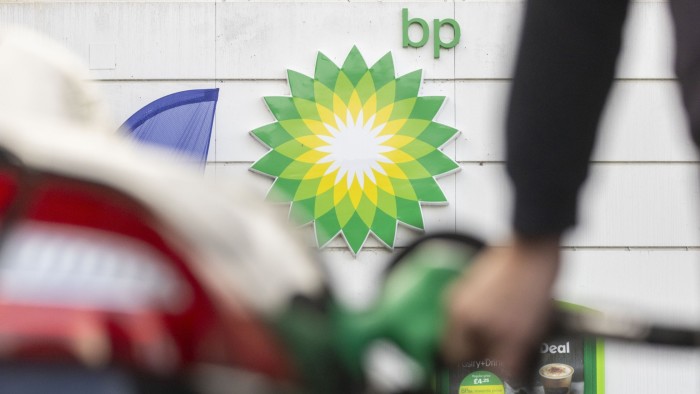Unlock the Editor’s Digest for free
Roula Khalaf, Editor of the FT, selects her favourite stories in this weekly newsletter.
BP said on Tuesday that profits had halved in the first quarter as it announced the departure of the head of strategy during its failed pivot to renewable energy.
It was the third time in five quarters that the UK oil major missed analysts’ forecasts for adjusted profit, which fell 49 per cent year on year to $1.38bn after BP traders were hit by issues in the gas market.
BP shares fell 2.4 per cent in London and have fallen 12.4 per cent this year, compared with a 3.3 per cent drop for rival Shell and a 2.6 per cent decline for France’s TotalEnergies.
Nevertheless, chief executive Murray Auchincloss hailed a “great operational performance” as BP’s oil and gas production ran at its highest efficiency “in the history of the corporation” and the company made “six exploration discoveries in a row”.
Auchincloss told the Financial Times that the performance was “exactly what the company needed” after it reset its strategy in February to refocus on oil and gas and cut spending on green energy.
BP’s head of strategy, Giulia Chierchia, who was one of the architects of its previous plan, would leave in June and not be replaced, it said.
Chierchia was not on stage in February when BP announced it would pivot back to oil and gas in an effort to revive its ailing share price. She became a target for activist investor Elliott Management, which has pushed BP to make deeper spending cuts and achieve $20bn of free cash flow by 2027.
Kate Thomson, BP chief financial officer, told the FT that the company had cut costs by $500mn in the first quarter, removed 3,000 contractors and was now assessing a further 3,400 contractor roles.
“We’re using [software company] Palantir to help us go role by role, moving at a pace way beyond what we could do manually,” she said. “The digital technology we’ve put into this space is allowing us to really rip through it pretty quickly.”
BP is the first of the energy majors to report its first-quarter earnings, with Shell, TotalEnergies and ExxonMobil all scheduled to publish updates this week.
The world’s largest oil companies are braced for their toughest year since the Covid-19 pandemic, as falling crude prices squeeze profits. BP is seen as the most exposed to the oil price, which fell to a four-year low earlier this month, because of its weak balance sheet.
Its current strategy is based on an oil price of $71.5 a barrel this year, while Brent crude was trading at $65 a barrel on Tuesday.
“It’s very hard to predict what’s going to happen with the macro environment right now,” Auchincloss said. “What we’ve seen is lower oil prices than we planned.”
Recommended
He said BP’s gas business was largely hedged and that lower oil prices had improved margins in its refining business.
“I think across these three things we’re balanced,” he said. “However, in the event that macro uncertainty continues, we’ve trimmed our capital [spending] by $500mn.”
BP’s net debt, a persistent source of concern for investors, rose $4bn to $27bn in the quarter, and the company said it had accelerated its asset sales to at least $3bn-$4bn this year and remained confident it would be able to reduce its debt to a range of $14bn-$18bn by the end of 2027.
Despite the weakness, BP said it would buy back $750mn of its shares, down from $1.75bn in the previous quarter and at the bottom of the range of analysts’ expectations.


